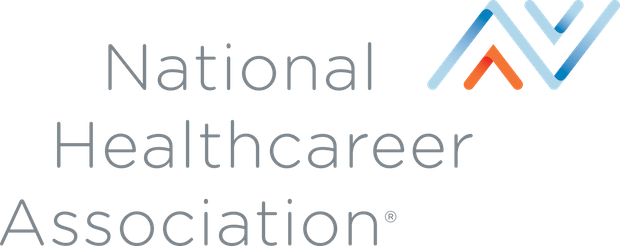If you’re caring and compassionate and want a career that can be both personally and professionally gratifying, medical assisting could be just what you’re looking for! As a Medical Assistant, you form a crucial link between the patient and the physician. The Medical Assisting program will train you in the knowledge and skills required to be a successful healthcare team member. Students learn communication techniques; medical terminology; infections control; anatomy and physiology, legal and ethical responsibilities, clerical/medical office duties such as maintaining filing systems, use of Electronic Medical Records, professional telephone techniques, scheduling appointments, and patient care. Training includes, but not limited to, administering injections/medication administration, phlebotomy, performing electrocardiograms (EKGs), assisting patients in preparing for examination, diagnostic laboratory procedures, cleaning and sterilizing equipment, collecting specimens, and assisting physicians in minor treatments and basic X-ray procedures.
The following table illustrates the program structure:
Course #
OCP
Course Name
Hours
HSC0003
A
Basic Healthcare Worker (Health Core)
90
MEA0002
MEA0501
B
Introduction to Medical Assisting
Medical Office Procedures
250
75
MEA0521
C
Phlebotomist, MA
75
MEA0543
D
EKG Aide, MA
75
MEA0581
MEA0530
MEA0573
MEA0506
MEA0942
E
Clinical Assisting
Pharmacology for Medical Assisting
Laboratory Procedures
Administrative Office Procedures
Practicum Experience
230
90
125
90
200
TOTAL HOURS
1300
Hours
Monday – Friday, 8 a.m. – 2:30 p.m.
Clinical hours vary
Cost
Approximately $6,275
Medical Assisting Fee Sheet 2324
What You’ll Learn
- Medical Office Procedures
- Communication and Interpersonal Skills
- Legal and Ethical Responsibilities
- Safety and Security Procedures
- Infection Control
- Anatomy and Physiology
- Clerical/Medical Office Duties
- Medical Terminology
- Processing Medical Documents
- Recognize and Respond to Emergency Situations
- Phlebotomy
- EKG
- Laboratory Procedures
- Basic X-ray Procedures
- Pharmaceutical Principles
- Professional work habits
- Practicum Experience
Employment Opportunities
Students who complete this course can expect to earn a starting salary of $13+ per hour in the following industries (Actual wages vary according to education, experience, and certifications.)
- Physicians’ Offices
- Urgent Care Centers
- Hospitals
- Outpatient Clinics
- Insurance Billing
- Laboratory Assisting
Career Ready Skills
- Act as a responsible and contributing citizen and employee.
- Apply appropriate academic and technical skills.
- Attend to personal health and financial well-being.
- Communicate clearly, effectively and with reason.
- Consider the environmental, social and economic impacts of decisions.
- Demonstrate creativity and innovation.
- Employ valid and reliable research strategies.
- Utilize critical thinking to make sense of problems and persevere in solving them.
- Model integrity, ethical leadership and effective management.
- Plan education and career path aligned to personal goals.
- Use technology to enhance productivity.
- Work productively in teams while using cultural/global competence.
Uniforms
Students are required to purchase their uniforms at:
Cape Uniforms & More (located in Cape Coral Hospital)
616 Del Prado S, Cape Coral • (239) 424-3677
Uniform Order Form
Instructor
- Elva Reid, BSN, RN
- (239) 334-4544, ext. 384
- ElvaMR@leeschools.net
Steps to Enroll
Prospective students must be 17 years of age or a high school graduate or its equivalent by the first day of class and meet minimum admission criteria for Medical Assisting. Once accepted, the student is required to have a physical, immunizations, drug screen, and background check.
- Attend a Virtual Information Session
- Take the CASAS test, if applicable
- Obtain official transcripts, if applicable (high school, GED, college, etc.)
- Apply for financial aid (official transcripts required)
- Provide appropriate residency documents
- Complete application packet
- Pay application fee
Program Info
Medical Assisting Master Plan of Instruction 2023-24
Program Start Date
July, 2024
Classroom hours: Monday – Friday, 8:00 a.m. – 2:30 p.m.
Clinical hours vary







